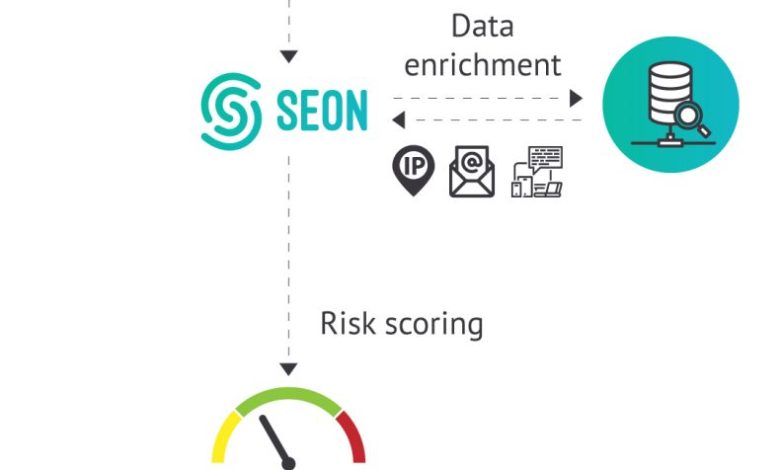How to Identify and Avoid Crypto Scams

- Understanding the common types of crypto scams
- Tips for spotting red flags in crypto investment opportunities
- Researching the legitimacy of a cryptocurrency project
- Protecting your digital assets from phishing scams
- Avoiding Ponzi schemes and pyramid schemes in the crypto space
- Seeking advice from trusted sources before making any crypto investments
Understanding the common types of crypto scams
When it comes to crypto scams, it’s essential to understand the common types that exist in the digital currency space. By being aware of these scams, you can better protect yourself and your investments from falling victim to fraudulent schemes.
- Phishing Scams: One of the most prevalent types of crypto scams involves phishing, where scammers create fake websites or emails that mimic legitimate crypto platforms. They trick users into providing their private keys or login information, allowing scammers to steal their funds.
- Ponzi Schemes: Ponzi schemes promise high returns on investments but use new investors’ money to pay returns to earlier investors. Eventually, the scheme collapses, leaving many investors with significant losses.
- ICO Scams: Initial Coin Offerings (ICOs) can be a breeding ground for scams, where fraudulent projects raise funds from investors and disappear with the money without delivering on their promises.
- Exchange Scams: Some crypto exchanges engage in fraudulent activities, such as manipulating prices, delaying withdrawals, or shutting down unexpectedly, resulting in users losing access to their funds.
- Malware: Malicious software can infect users’ devices and steal their crypto assets. Scammers use various tactics, such as fake wallets or mining software, to trick users into downloading malware unknowingly.
By familiarizing yourself with these common types of crypto scams, you can be more vigilant and cautious when navigating the crypto space. Remember to always conduct thorough research, verify the legitimacy of platforms, and never share your private keys or personal information with anyone.
Tips for spotting red flags in crypto investment opportunities
When considering crypto investment opportunities, it is crucial to be vigilant and watch out for red flags that may indicate a potential scam. Here are some tips to help you spot these warning signs:
- Check for unrealistic promises of high returns with little to no risk. If an investment opportunity sounds too good to be true, it probably is.
- Research the company or individual offering the investment thoroughly. Look for reviews and feedback from other investors.
- Be wary of pressure tactics to invest quickly or without proper due diligence. Legitimate investment opportunities will allow you time to make an informed decision.
- Watch out for complex investment structures or technical jargon that you don’t understand. Scammers may use confusing terminology to mislead investors.
- Verify the security measures in place to protect your investment and personal information. Scammers may try to steal your crypto assets or identity.
By staying informed and aware of these red flags, you can protect yourself from falling victim to crypto scams. Remember to always exercise caution and conduct thorough research before investing in any crypto opportunity.
Researching the legitimacy of a cryptocurrency project
When researching the legitimacy of a cryptocurrency project, it is crucial to conduct thorough due diligence to avoid falling victim to scams. Here are some key steps to help you determine the credibility of a crypto project:
- Check the team behind the project: Look into the backgrounds of the team members to see if they have relevant experience in the crypto industry. Verify their identities and ensure they are not using fake names or credentials.
- Review the project’s whitepaper: The whitepaper should outline the project’s goals, technology, and roadmap in detail. Look for red flags such as vague or unrealistic promises, plagiarized content, or lack of technical details.
- Examine the project’s community and online presence: A legitimate crypto project will have an active community of supporters and a strong online presence on social media platforms and forums. Look for engagement, transparency, and positive reviews from reputable sources.
- Check for partnerships and endorsements: Legitimate crypto projects often collaborate with established companies or receive endorsements from reputable individuals in the industry. Verify any partnerships or endorsements to ensure they are genuine.
- Consult with experts and conduct independent research: Seek advice from trusted sources in the crypto community, such as blockchain developers, analysts, or influencers. Conduct your research to verify the project’s claims and assess its potential for success.
By following these steps and remaining vigilant, you can increase your chances of identifying and avoiding crypto scams. Remember that if something seems too good to be true, it probably is. Stay informed, stay cautious, and protect your investments in the volatile world of cryptocurrencies.
Protecting your digital assets from phishing scams
Protecting your digital assets from phishing scams is crucial in the world of cryptocurrency. Phishing scams are a common tactic used by scammers to trick individuals into revealing their sensitive information, such as passwords or private keys, which can then be used to steal their funds. To avoid falling victim to these scams, it is important to be vigilant and take proactive measures to protect yourself.
One way to protect your digital assets from phishing scams is to always verify the authenticity of the websites you are visiting. Be cautious of any unsolicited emails or messages that ask you to click on a link or provide personal information. These could be phishing attempts designed to steal your information. Instead, type the website address directly into your browser or use bookmarks to access trusted sites.
Another important step in protecting your digital assets from phishing scams is to enable two-factor authentication (2FA) on all of your accounts. 2FA adds an extra layer of security by requiring you to provide a second form of verification, such as a code sent to your phone, in addition to your password. This can help prevent unauthorized access to your accounts even if your password is compromised.
It is also essential to keep your software and security systems up to date to protect your digital assets from phishing scams. Scammers often exploit vulnerabilities in outdated software to gain access to your information. By regularly updating your software and using reputable antivirus programs, you can reduce the risk of falling victim to phishing scams.
Avoiding Ponzi schemes and pyramid schemes in the crypto space
When navigating the crypto space, it is crucial to be aware of the red flags associated with Ponzi schemes and pyramid schemes. These fraudulent schemes often promise high returns with little to no risk, luring in unsuspecting investors. To avoid falling victim to these scams, here are some key points to keep in mind:
- **Research** the project or company thoroughly before investing any money. Look for reviews, feedback, and any negative press that may indicate fraudulent activity.
- **Be wary** of investment opportunities that guarantee high returns with little or no risk. Remember the old adage, “If it sounds too good to be true, it probably is.”
- **Understand** the business model and how profits are generated. If the primary source of income is from recruiting new investors rather than selling a legitimate product or service, it may be a pyramid scheme.
- **Seek advice** from financial professionals or experienced investors before making any investment decisions. They can provide valuable insights and help you avoid potential scams.
- **Trust your instincts**. If something feels off or if you are pressured to invest quickly, take a step back and reassess the situation. It’s better to be safe than sorry.
By staying informed and exercising caution, you can protect yourself from falling victim to Ponzi schemes and pyramid schemes in the crypto space. Remember to always do your due diligence and never invest more than you can afford to lose.
Seeking advice from trusted sources before making any crypto investments
Before investing in any crypto project, it is crucial to seek advice from trusted sources to ensure that you are making an informed decision. Consulting with financial advisors, crypto experts, or reputable online resources can help you identify potential scams and avoid falling victim to fraudulent schemes.



